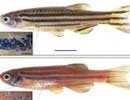The American International Crop Breeding Company and African biologists have collaborated on the “African Sorghum Improvement Project”, utilizing biotechnology to enhance the quality of sorghum in Africa.
This could be a beacon of hope in addressing nutritional deficiencies and poverty for the continent’s population.
 |
| Sorghum |
Since October 2005, Luke Mehlo, a molecular biologist from South Africa, has been studying sorghum at a biology laboratory in Johnston, Iowa.
Typically, sorghum is used as animal feed, industrial raw material, and food. This crop can withstand harsh natural conditions and is rich in vitamins and minerals. The nutrients in this plant have helped impoverished communities survive during times of disaster.
Every year in Africa, many people die from hunger, and approximately 300 million live in drought-affected areas, relying on sorghum and other crops as their food source.
While traditional sorghum varieties are highly drought-resistant, they lack essential nutrients.
Scientists hope to improve sorghum genetics by incorporating beneficial genes from other crops, making it easier to digest and increasing its content of essential nutrients such as protein, amino acids, iron, zinc, and vitamins A and E.
The CEO of the American Crop Breeding Company stated that it would take an additional eight years to introduce genetically modified sorghum to the market.
When the genetic transformation of sorghum is successful and commercialized, the company will not benefit directly, but the success of this project could open doors for them with other genetically modified crops in countries that remain skeptical about plant genetic modification.
The primary funding for this project is provided by partners of the National Institutes of Health – the Bill & Melinda Gates Foundation.
The Bill & Melinda Gates Foundation has previously funded $450 million to enhance the nutritional content of crops such as bananas, cassava, and rice. Dupont, the sole commercial partner in this project with the International Crop Breeding Company, has also donated $4.8 million, providing manpower and equipment for scientists working in Africa.
Researchers believe that while the enhanced nutritional content of sorghum may not completely resolve Africa’s poverty issues, it will at least help the African population overcome some of their challenges.
Tuyết Nhung





















































